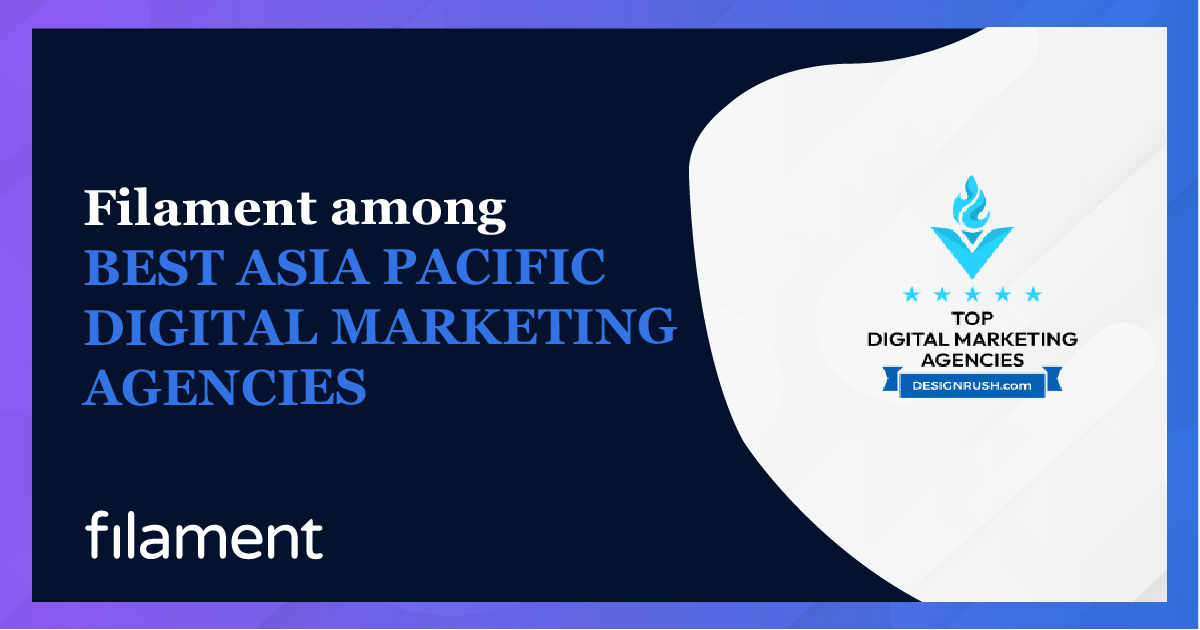What Are the Different Types of Tech Companies? The Ultimate Guide
Explore many of the diverse types and categories of tech companies in this comprehensive guide. Discover industry segments, from startups to giants, and gain insights into their functions and impact.

The technology industry encompasses a wide range of ecosystems, business models and types of tech companies. From hardware retailers to managed service providers and system integrators, simply using the term “tech company” to describe an organization in this massive industry just doesn’t cut it.
In this guide, we’ll explore the different types of technology companies.
Table of Contents
- What is a Tech Company?
- What Does a Technology Company Do?
- The Different Types of Technology Companies
- Independent Software Vendor (ISV)
- Software as a Service (SaaS)
- Cloud Solutions Provider (CSP)
- Managed Service Provider (MSP)
- Value-Added Reseller (VAR)
- Systems Integrator (SI)
- Data Center (DC)
- Cybersecurity Provider
- Managed Security Service Provider (MSSP)
- Distributor
- Aggregator
- Telecommunications Providers (Telco)
- Original Equipment Manufacturer (OEM)
- Consultancy and Developer Agencies
- Hardware Retailers
- What Is an Information System Business?
- What Businesses Use Information Systems?
- What Are the Top 5 Major Tech Companies Called?
What Is a Tech Company?
A tech company is any organization that designs or sells technology-intensive products, such as software solutions, computer hardware, consumer electronics, and modern telecommunication systems, in addition to internet-based services like cloud storage, online marketplaces, customer experience portals, and SaaS (Software as a Service) solutions.
What Does a Technology Company Do?
A technology company may be involved in one or more of the following business activities:
- Develops tech products
- Sells tech products and services to companies, consumers, or both
- Provides online services like marketplaces and search engines.
The Different Types of Tech Companies
The tech industry is huge. Because of that, there are lots of technology companies that do different things. Now, let’s take a look at the types of tech companies.
Value-Added Reseller (VAR)
Value-added resellers resell products from other vendors and add extra services to the package, such as consulting, implementation, and support.
For example, computer retailers sell computer hardware with additional services like extended warranties, software programs, training, and customization.
Managed Service Provider (MSP)
A managed service provider offers IT services for companies that don’t want to rely on on-premises solutions. Managed service providers enable organizations to use their products without having to deal with on-going maintenance, upgrades, security risks, and overall management.
Since many companies have limited resources, overloading their software developers and IT teams with managing and maintaining complex IT infrastructure and systems will distract them and make them less productive. Eventually, the company will have no choice but to hire more staff and bear additional monthly expenses.
According to recent research, 45% out of 451 large businesses surveyed are planning to partner with a managed services provider, and up to 59% of IT services have shifted from a break-fix model to a managed service contract model.
Cloud Solutions Provider (CSP)
A Cloud Solution Provider (CSP) is a company that specializes in delivering and implementing cloud services. These include Infrastructure as a Service (IaaS), Platform as a Service (PaaS), Disaster Recovery as a Service (DRaaS), backup and recovery, and others.
Usually, cloud solutions providers offer multiple deployment options for their customers, like on-premises, public, or hybrid clouds.
One example of CSPs is Veeam. Veeam’s product portfolio includes Veeam Backup and Replication for hybrid and multi cloud deployments , and managed services (BaaS and DRaaS), as well as standalone modules for Microsoft 365, Azure, AWS, and more.
Software as a Service (SaaS)
The Software as a Service (SaaS) model enables companies to license software products on a subscription basis. The subscription is usually monthly or annual, and the license expires if the company decides not to renew its subscription.
SaaS companies provide software solutions for companies in a wide range of industries, such as banking, healthcare, IT, and marketing. Unlike on-premises software solutions, SaaS products are fully hosted, maintained, managed, and upgraded by the provider, making them a less costly choice for many organizations.
With hybrid and remote work environments becoming the norm after the 2020 pandemic, the SaaS industry has grown exponentially over the past few years. Companies need flexible software solutions that can be used anywhere without the headache and costs associated with on-premises solutions.
According to research by SkyQuest Technology, the SaaS market value is expected to reach USD 720.44 Billion by 2028, with a compound annual growth rate of 25.89% in the period from 2022 to 2028.
Independent Software Vendor (ISV)
An independent software vendor designs and sells software solutions capable of running on different hardware devices, platforms or operating systems.
One example of an independent software vendor is Adobe Systems. The company develops creative software products such as Adobe Photoshop, Illustrator, and AfterAffects. These products can be used on desktop computers and mobile devices. They also run on most popular platforms, including Windows, MacOS, Linux/Ubuntu, Android, and iOS.
Another example is Oracle. The company provides integrated cloud infrastructure and cloud-based applications.
Systems Integrator (SI)
Systems integrators integrate complex IT products from one or more vendors into a single cohesive system that provides customers with the functionalities they need in one package. It’s like creating a Swiss Army knife out of various tools and pocket knives.
Systems integrators provide customers with more value for their money by letting them use and pay for only one customized software solution that meets their very specific requirements.
An example of an SI company is PWC, a leading global systems integrator that provides integrated enterprise solutions in cybersecurity, financial statement audits, and assurance. Some of the company’s most prominent partner ISVs include Oracle and Microsoft.
Data Center (DC)
A data center is a remote building that hosts IT systems and applications used to perform certain functions, such as data storage and networking. A data center consists of networked computers, computing infrastructure, and storage systems.
Organizations that build and operate data centers are also known as colocation service providers. They collaborate with companies in a wide range of industries to make their products available to customers with their data centers.
For instance, Equinix, a digital infrastructure company, offers data center and colocation solutions that enable businesses to manage distributed IT environments and store company data with a digital-first approach.
Cybersecurity Provider
A cybersecurity provider is a software company that provides security products and services for organizations to protect their critical data and minimize downtime. Some of the services that cybersecurity providers offer include incident response, cybersecurity audits, and network security.
One notable cybersecurity provider is Gen Digital Inc (formerly Symantec). The company has a diverse portfolio of popular cybersecurity solutions such as AVG, Avast, Norton, and Avira.
Managed Security Service Provider (MSSP)
A managed security service provider is a type of MSPs that specializes in security services like incident response and network security.
Unlike cybersecurity providers, MSSPs don’t just offer the product; they also take care of the initial setup process, maintenance, monitoring, support, and updates. companies can use the services provided by the MSSP with a subscription-based model.
FireEye can be classified as an MSSP. It offers a fully managed, cloud-based XDR platform that incorporates advanced detection and response technologies to protect their customers’ data.
Distributor
A distributor simply resells products that they buy from multiple vendors. For tech vendors, mass distributing their products can be costly, and that’s where distributors come in. They buy the vendor’s products in large quantities and take care of warehousing and logistics. Some distributors also offer additional services like extended warranties, custom packaging, and support.
One example is TD Synnex, a company that distributes software and hardware products from major tech vendors like Google, VMWare, Sony, and Lenovo.
Aggregator
An aggregator is a type of tech company that combines data from various sources into a single dashboard to streamline workflows. Aggregator companies include hotel booking websites, news platforms, and social media management platforms.
An example of that is HootSuite, a company that provides social media management software. The platform enables marketers to post on multiple social media platforms and view combined feeds, respond to customers through a unified inbox, and access relevant analytics.
Telecommunications Providers (Telco)
Telecommunications providers offer a broad range of communication services such as TV, internet, and telephone. The company may either build their own infrastructure or rent existing infrastructure from other providers. One familiar example is AT&T, a Telco provider that provides landline telephones, mobile telephones, internet services, and fixed-line telephones.
Original Equipment Manufacturer (OEM)
An Original Equipment Manufacturer (OEM) designs tech components and products that other tech companies use in their own portfolio of products. For example, a computer hardware company may source the motherboards from a specialized OEM.
Some OEMs, like Foxconn, manufacture entire products for other companies, like the Apple iPhone.
Consultancy and Developer Agencies
Consultancy and developer agencies develop and maintain digital products for their clients. They also offer consultancy services for companies that only need guidance in their existing in-house development processes.
Companies like Wipro and ThoughtWorks collaborate with clients to design customized digital products for their use cases.
Hardware Retailers
Hardware retailers sell physical tech products like smartphones, tablets, cameras, and computers. Many hardware retailers also offer value added services like maintenance and customer support. Some well-known hardware retailers include Best Buy and Newegg.
What Is an Information System Business?
In simple terms, an information system is a set of components that handle information collection, processing, and dissemination.
Examples of information systems include transaction processing systems, decision support systems, and management information systems. An information system business provides these systems for customers and maintains and manages them.
What Businesses Use Information Systems?
Businesses use information systems in a wide array of industries to streamline their operations and maximize efficiency and ROI. Below are some of the most common use cases for information systems in different industries:
- Healthcare: Policy decision support, medical imaging, and medical healthcare record systems
- Finance and fintech: financial transaction, risk management, and accounting information systems
- Retail: inventory management, supply chain management, and customer relationship management information systems
- Legal: case management, document management, E-discovery, and legal research systems
- Software development: Software development lifecycle (SDLC) management, testing and quality assurance and project management systems
- Marketing: automation, research, customer relationship management, and analytics systems.
- Telecommunications: network management, billing, and customer management systems
- Education: student record keeping and learning management systems.
What Are the Top 5 Major Tech Companies Called?
The five dominant tech companies in the information technology industry are often referred to as Tech Giants, “Big Tech”, and “Big Five.
They include:
Alphabet Inc (Google)
Alphabet, or commonly known as Google, is known for its search engine that’s used by hundreds of millions of people everyday. The search giant also offers a range of hardware and SaaS solutions, which are:
- ChromeOS, a linux-based desktop operating system
- Android, a mobile operating system
- Google Ads, an online advertisement platform
- The Nexus lineup of Android smartphones
- Google Maps, a web mapping platform
- Google Workspace (includes Gmail, Google Drive, Google Calendar, Google Docs Editor, and other products)
Amazon
Amazon is a tech company that’s widely known for Amazon.com, an online marketplace that sells virtually everything. It’s the largest e-commerce store in the world.
However, Amazon’s portfolio isn’t limited to its e-commerce activity; the company offers other products and solutions that include:
- Amazon Web Services (AWS): On-demand cloud computing platforms and APIs
- Alexa, a voice-activated personal assistant
- Amazon Music, a music-streaming service
- Amazon Prime, a video-streaming service
Apple
Apple is the most valuable tech company in the world. The Cupertino-based tech giant is largely known for the following hardware products:
- The iPhone lineup of touchscreen smartphones
- The iPad lineup of tablet computers
- The iMac family of all-in-one desktop computers
- The AirPods line of wireless headphones
- The Apple Watch lineup of wearable smartwatches
Apple also has a broad portfolio of service-based and digital content products that include Apple Pay, Apple Music, Apple TV+, iTunes Store, and Apple Books.
Meta (Facebook)
Meta (formerly Facebook) is a tech company that’s known for Facebook.com, the social media platform that almost everyone uses to communicate with other people and stay updated on things that interest them.
Over the years, Meta has acquired other social media platforms, including Instagram, Whatsapp, and Snapchat. Meta also owns PayPal, a fintech company that offers an online payments system.
Microsoft
Microsoft’s product portfolio encompasses a wide range of software and hardware products. Some of its most popular products and services include:
- Windows line of operating systems
- Microsoft 365 Office Suite
- The Microsoft Surface lineup of personal computers
- The Xbox line of gaming consoles
- Internet Explorer and Edge web browsers
Grow Your Tech Company With the Right Digital Marketing Partner
Regardless of the business model your tech company operates on, we can tailor a digital marketing strategy that’ll help you generate demand, gain more customers and maximize your return on investment.
Having worked with a wide variety of tech vendors and partners, we know what it takes to craft a marketing strategy that keeps the customers coming.
Reach out to us now to discuss your marketing strategy!





